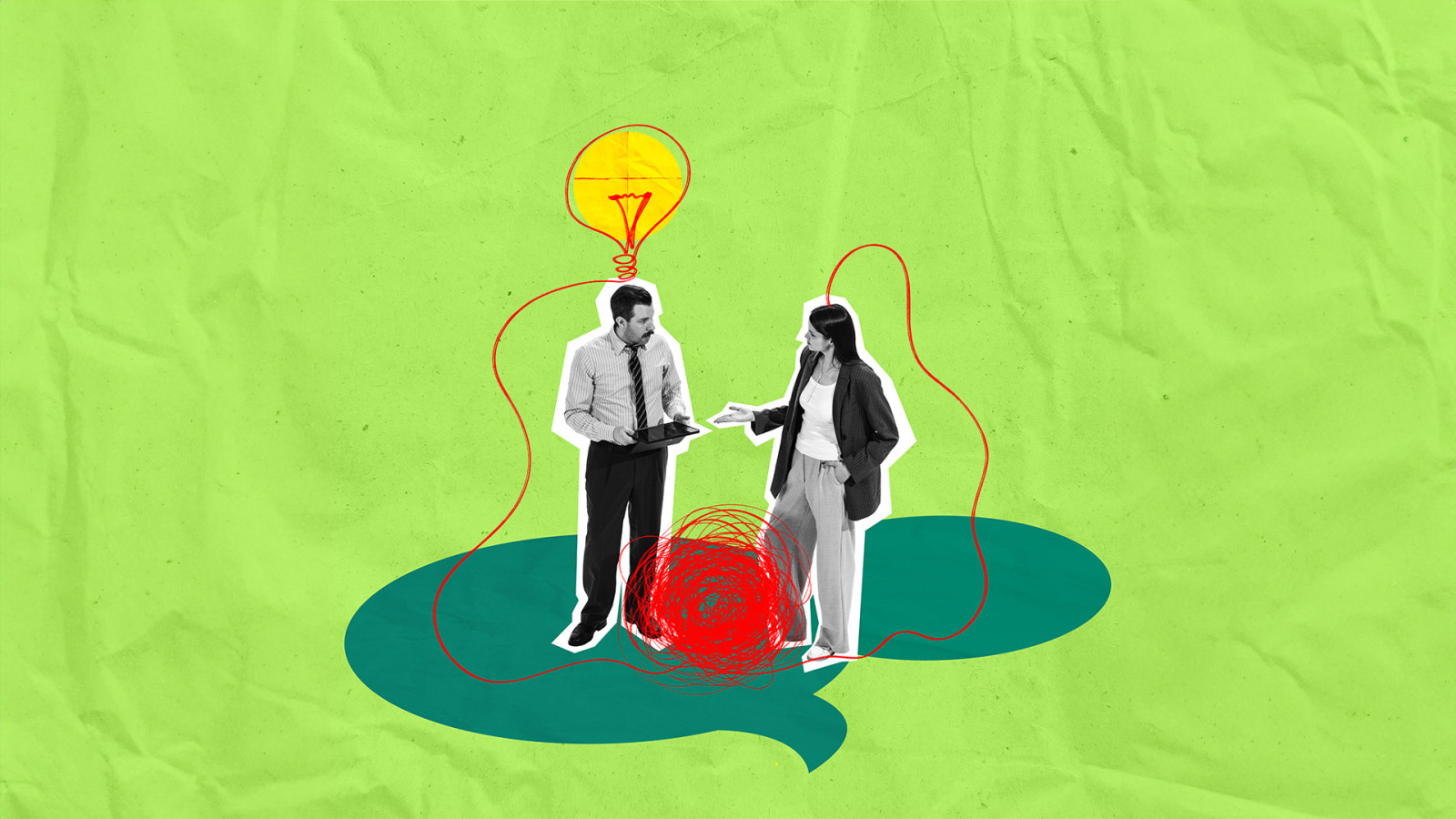
Having completed a couple degrees in anthropology, as well as a bit of on the ground ethnographic fieldwork (as is customary for every burgeoning anthropologist), I’ve found adjusting to desk-job life to be a trip. Although I came in expecting to use little of my anthropological skillset, I’ve found that there are countless ways in which the methodologies of my area of study can be applied to make businesses better.
Recent trends in anthropology have moved towards researching business. When I was studying and doing my ethnography for my MSc in digital anthropology, I encountered more than a few PhD students doing ethnographies of businesses, and many other MSc or MRes anthropologists getting their degrees in the hopes of working in businesses in market research or user research. Those friends of mine have done very well. It’s safe to say that times have changed for your average anthropologist, no longer are we stuck deep in the jungle or stranded on a desert island. We’re at the desk to your right.
What is anthropology? How does it work?
Although I haven’t gone into the same field as some of my graduating class, I feel the same as they do about the applicability of anthropology in the business world. What anthropology is, for the uninitiated, is the study of humanity. Anthropologists will go and live with certain cultures, typically ones different from their own, and then compare the data they gather through qualitative (non-numerical) research, interviews, focus groups, and by participating in the society (called “participant observation” by professionals). They will typically be “in the field” for at least 18 months. These methods collectively are called ethnography.
What comes from ethnography is a vibrant picture of the culture the anthropologist participated in. The information gathered is rich, specific, and tied to countless people and sectors of society. It goes deep. They know everything there is to know about a people and a place, write it down, package it up, and get a PhD for it.
Why would this work do for your business?
This applies to businesses, because businesses have work culture. Companies are places where people come to know each other very well, and thus the working relationships fostered between everyone involved in a company creates a culture. It is obvious to those who have worked in an office that culture is not something exclusive to a nation or a tribe. It’s everywhere. Work culture has real-life impact.
There are specific things about companies that cannot be understood unless they are experienced. Anthropologists understand things through experience, and experiences cannot be quantified. There can’t be numbers in a survey which really show how people react to others in the office offering to get them a hot drink on a cold day. That’s office culture, to be seen by a researcher. No one has the self-awareness to note their own reaction in truth, and few think to point out little details like this as important.
Conversely, we often don't realise we're in a toxic workplace until we leave. Every day is full of little details, little fragments of life which we do not notice, which define office culture. It's the little things that bring up employee morale. The little things that make a good workplace culture. These aspects don’t fit into a single 10-minute interview about how our job fits into the structure of a workplace. Someone needs to watch us and get a feel for things.
Although quantitative research can skim a little bit of information off the surface, which is often quite valuable, a long-term qualitative study in which people are repeatedly interviewed, their day-to-day at work is examined in detail rather than looked at as boxes to tick or a scale of feelings from one to ten, is needed to get a sharp image rather than a Monet.
Truly useful, informative social research, which is (in my opinion) deep research, comes from time taken to be a witness to a culture. A company is a culture. For a company to be understood, for its people to be heard and thus for their productivity and environment to be optimised, there needs to be a truthful understanding of what the culture of the company is.
How can you do this?
In my wildest dreams, everyone would be using ethnographic anthropological techniques to their fullest extent within the business world, because it is my inclination that these tactics can make things that much better for everyone involved. However, I know that for the sake of time, funding, and manpower, this will not be the case for the vast, vast majority of players in the game of business life.
There are three levels at which a researcher can integrate these methodologies as a strategy to better understand their company culture.
Low commitment
The lowest commitment to using ethnographic methods, involves taking in qualitative feedback from employees, focusing on employee engagement, and speaking with community members and interviewees. When people interact with the company, their reactions should be noted. It’s simple, easy, and requires no additional effort aside from writing things down that are already being said. Anyone on the team can do it. This lower level can extend a little bit, into focus groups where team members might talk about what the company culture means to them, or interviews with clients about what they perceive the culture of your company to be. It can be easy to foster this step towards employee happiness.
At Wardour, I enjoyed our creative director Jamie Trendall’s decision to have a creative day out, which I found quite ethnographic in nature. Jamie gave several teams (akin to focus groups, in my opinion) a list of questions about the creative and organisational culture at Wardour, we answered and gave feedback, and these talks will inform who we are going forward. Having a meta-discussion about the culture and using our culture as a factor in our decision making will give us fuel for our creative fire moving on. This moment was, in essence, Jamie doing a miniature ethnographic survey of Wardour.
Medium Commitment
A middle ground approach to utilising the ethnographic method would be a small ethnography, an ethnography completed by an employee well versed in the social sciences. Believe it or not, there are social scientists everywhere. There’s one right under your nose, I’m telling you. This individual could spend a few hours every week writing up “field notes” about their fellow employees, asking their coworkers relevant questions about the work environment, their work itself, their commutes, and employee engagement. This person could attain deep knowledge of the working lives of their coworkers, at the cost of a few hours of their regular work, and at the benefit of a greater understanding of what the holistic work environment is.
The output would be a report explaining their findings, tied to anthropological theory where relevant, both explaining the current situation of the company and advising everyone from the top down regarding best practice moving forward. Although this could be done with a quick survey, a survey scrapes the surface, is momentary, often frustrates employees by adding another task to their to-do list, doesn’t consider the long term, such as feelings which arise as projects ramp up, or feelings when business opportunities fall through. An ethnographer could even look into what makes a positive workplace culture or a negative workplace culture, or a “hierarchy culture” functional or dysfunctional. Everything about the employee experience is an option for the ethnographer, from employee satisfaction and employee wellbeing, to work life balance. Everything goes deeper than we think, and an ethnographer’s job (even if they are an amateur) is to uncover this richness.
High Commitment
The pinnacle of taking advantage of the fruits of anthropology, in my opinion, would be to sponsor a PhD student’s ethnography. Saying to a university that you would like to fund a PhD student, have them study your workplace for 18 months, and then taking the information which they gather and using the ethnography they create to better your business. The great thing about a PhD student is the fact that a funded PhD does not cost very much to a business (less than most employees, honestly), and they have advisors who are at the top of their field watching them every step of the way. It’s an incredible deal for a business.
A long term, intensive, dedicated study is the best way to get good information. To attract the right candidate, a company can offer to fund a PhD, offer a stipend, and advertise the position through a good university. If a business is lucky, they’ll find themselves a genius. If they’re really lucky, there’s a chance that the student might want to stay on as an employee after their study has commenced, using their and deep knowledge of the company to keep improving the business long after the original ethnography. An employee who has spent so much time studying the company culture and dedicating themselves to cultural change within the business will certainly be a good cultural fit.
Final thoughts
Anthropological insights come in all shapes and sizes, and the business benefits it can bring are innumerable. I think that anthropology will change the way business is done. Market culture, as it stands, is rigid. Anthropology can change this. What companies need to do is figure out whether they’d like to be ahead of the curve, or behind. Going against the current culture of only using quantitative research is a way to stand out, in a positive way. We all want to increase our profits. We don’t need to solely use numbers to make higher quantities of cash.
It's important to go for the gold, financially, but Anthropology can do this and more. It can make sure that every employee has good work life balance, job satisfaction, that the company has strong culture, and more. Healthy workplace culture is wealthy workplace culture, and anthropology can bring about the work environment needed for positive cultural change.
Related insights articles
Stay ahead of the curve
Sign up to our emails
